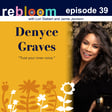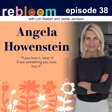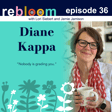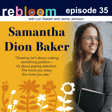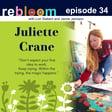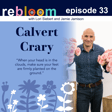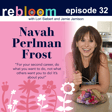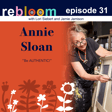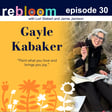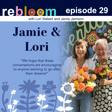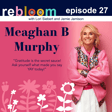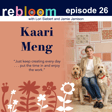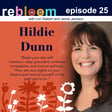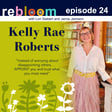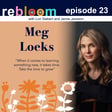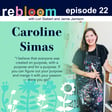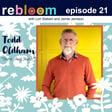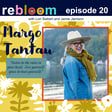
Cathy Nichols: Following her heart with her art!
It’s no secret, Lori loves color and Jamie loves florals! What a treat for us to interview and welcome Cathy Nichols, a mixed media artist specializing in lush florals set within lyrical layers of text, pattern and of course bold color. Her goal is to promote a vision of kindness, love and interconnectivity in her work using paper, paint, archetype and, always, a bit of magic. A lifelong teacher, Cathy adores nurturing her students and helping them to unleash their creative vision. Her beautiful story of reblooming is an inspiration and she reminds any artist, new or experienced, how important it is to listen to your heart and allow your emotions to take you on a creative journey.
Our Podcast is proudly sponsored by Jet Creative and UrbanStems! Jet Creative is a women-owned marketing firm committed to community and empowerment. If you are looking to build a website or start a podcast--visit JetCreative.com/Podcast to kickstart your journey.
UrbanStems is your go-to source for fresh gorgeous bouquets flowers and gifts delivered coast-to-coast! USE: BLOOMBIG20 to save 20%!
Subscribe to this podcast and follow us on Instagram and Facebook @rebloom.podcast
